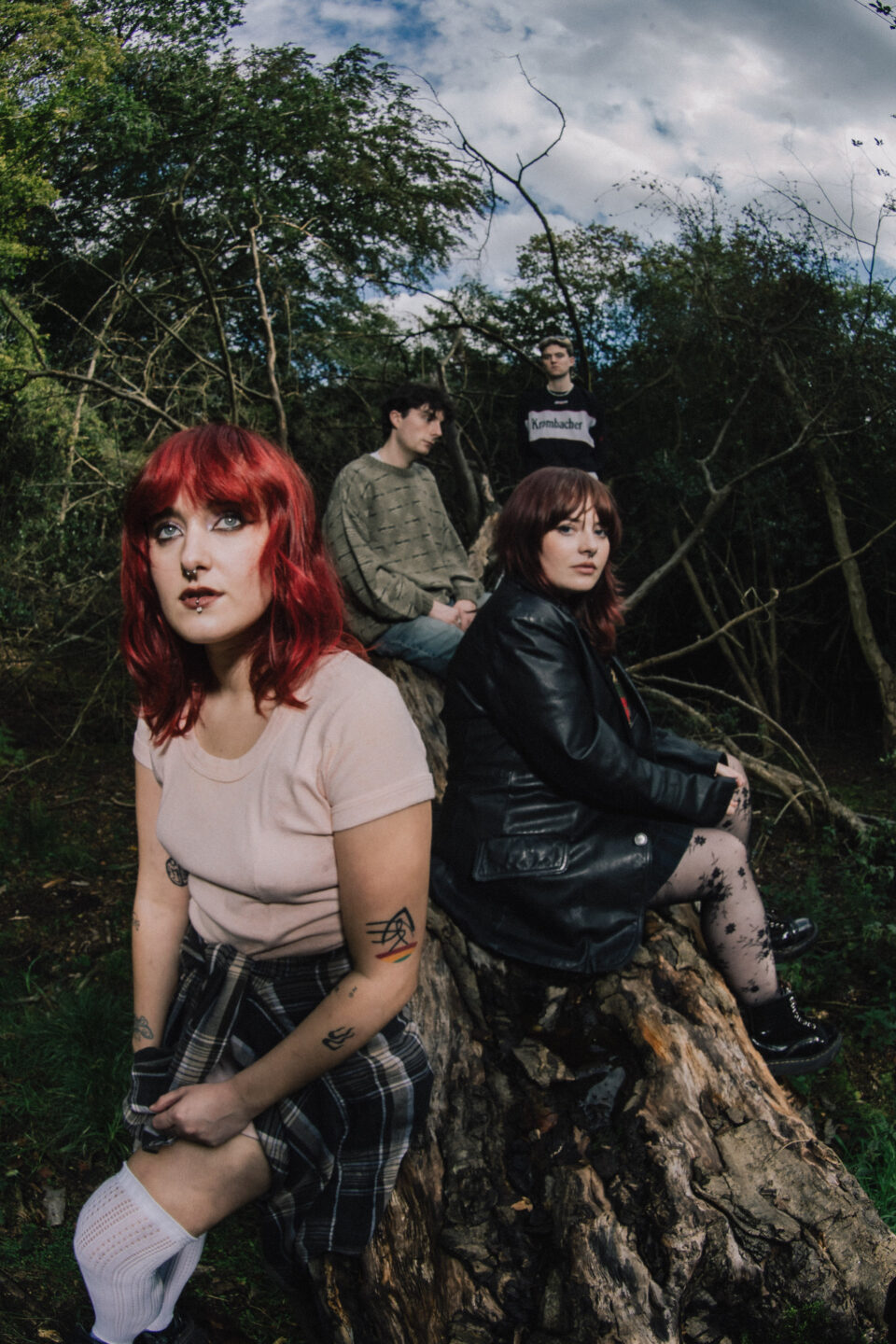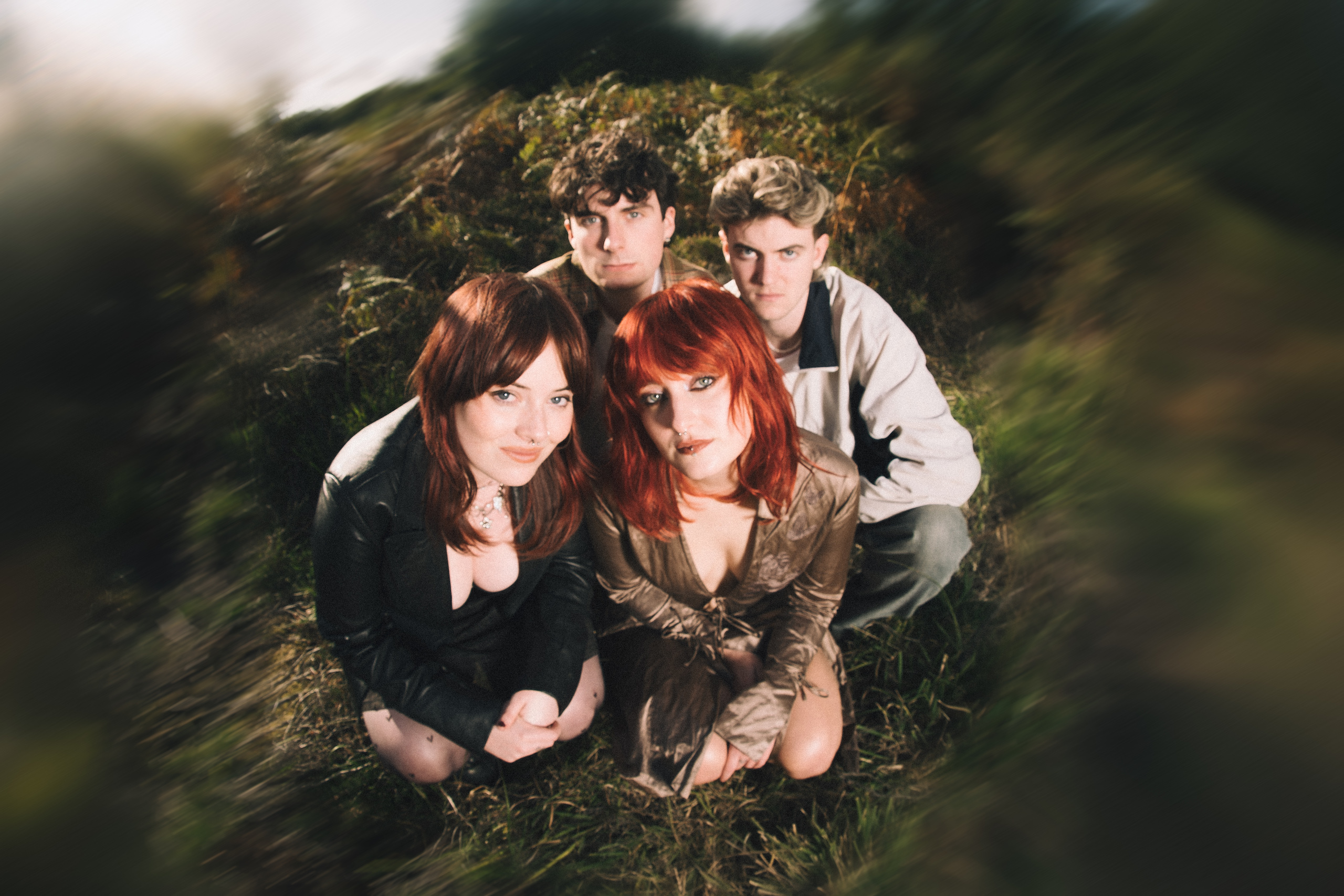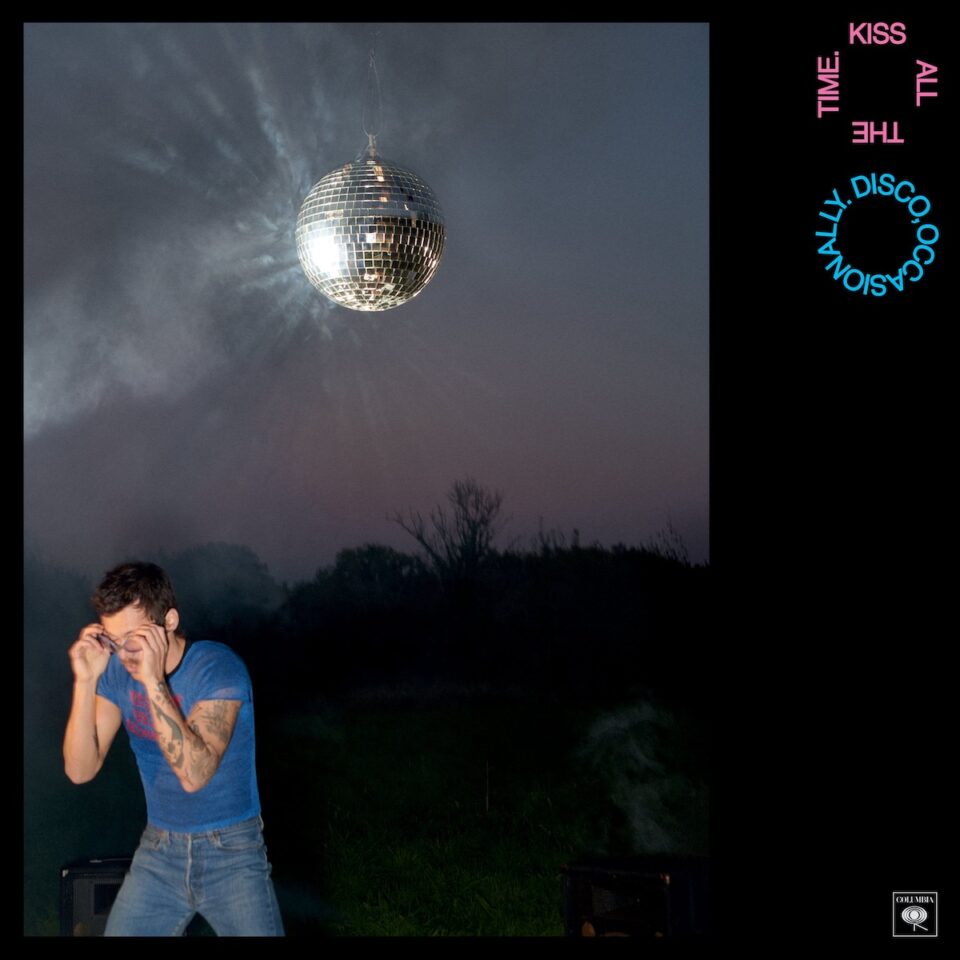BACKSTORY: After two EPs that made them a regional success in Ireland, the alt-rock quartet moved to London to record their debut LP, Madra
FROM: Galway, Ireland
YOU MIGHT KNOW THEM FROM: Their breakthrough 2022 EP, Banshee
NOW: After signing to Atlantic Records, NewDad are primed to become a Stateside sensation with their first full-length
By the time NewDad released their hotly tipped debut LP Madra, the group led by Julie Dawson had begun engaging with the material in a different way. The album, which arrived at the end of January via Atlantic Records, was completed in February of 2023. Its diaristic nature and heart-on-sleeve lyricism made it an intense personal reflection of Dawson and her bandmates’ world at a particular moment in time. But by the time Madra was released, the group wasn’t necessarily in the same mental headspace as they were when they wrote these songs. It taught Dawson to detach from her work, to view creation as something fleeting, temporary, and ultimately, for her listeners.
“It’s funny to think back on where you were when you wrote these songs and where you are now, because it’s obviously pretty therapeutic to write all that and put it into a song,” Dawson explains. “Once you begin to reckon with these feelings in a different way, hopefully the music can do something for other people when you sing it and play it live.” Now, the songs on Madra are a reminder of how far Dawson and her band have come, and a guiding light for anyone still struggling with the issues that pop up on the album. “Even if a song helps just one person, it’s still important.”
Musically, the band—which also consists of Cara Joshi, Fiachra Parslow, and Sean O’Dowd—moves between shoegaze and other ’90s-sourced alt-rock, 1980s dream pop, and more contemporary emo-tinged post-punk. The band became immensely popular extremely quickly in Ireland off the strength of two stellar EPs, 2021’s Waves and 2022’s Banshees, and Madra is both a defining statement and recognition that they’re not beholden to the sounds that made them such hot shots in the UK music scene. The basslines are crisp and melodic (think Breeders), the drums edgy and occasionally flashy (hints of Bloc Party), and the guitars searing and driving like many of The Edge’s best riffs.
“It’s evolved quite a lot from when we first began dreaming of this band, and it’s done so in ways we couldn’t even imagine when we were kids.”

“Where I Go,” one of the album’s emotional focal points, grooves along with a slow-building momentum that explodes during the chorus. “Now, I’m disconnected / I’m not alright / ’Cause you took my pride / Now I’m only here sometimes / And I don’t know where I go,” Dawson sings. When the guitar notes come roaring in during the post-chorus, they land like punches in the gut. “I wish someone could fix what was broken / I wish I hadn’t been so open,” Dawson laments.
Lyrically, the album mostly revolves around these themes of isolation, loneliness, regret, and longing. Named after the Irish word for “dog,” Madra itself is a reflection of these ideas. “So much of the album is about repeating patterns and not being able to escape stuff. It’s that feeling of things following you around like a dog.” The group aims to create a culture of safety for their fans, to show that these feelings are OK to have and—more paramount—OK to express. “It’s important to see feelings, whether they’re good or bad, and own them and embrace them,” Dawson explains.

On “In My Head,” interlocking guitar lines shimmer above a shaker before dance-leaning drums give the song an upbeat, galloping pace. Dawson sings, “’Cause I’m buried under blankets / Descending into madness / And there’s no escape / From the thoughts burned in my brain.” The cathartic, piercing quality of the guitars during the chorus gives the song the feel of a fresh tattoo: it hurts, but it signifies something new, a certain defiance.
It’s easy to forget when listening to a debut this assured, this confident, this stacked with interesting ideas, that the members of NewDad are still in their early twenties. The songwriting and craftsmanship of this record suggests a maturity beyond the group’s years. It’s one of the most impressive parts about Madra, just how professional and competent it sounds.
“It’s so easy to forget how far we’ve come from almost failing our music practical when we were 16, but it’s so important to step back and reflect on it as well,” Dawson says. “It’s evolved quite a lot from when we first began dreaming of this band, and it’s done so in ways we couldn’t even imagine when we were kids,” she adds. To put it simply: “It’s very sick.” FL







